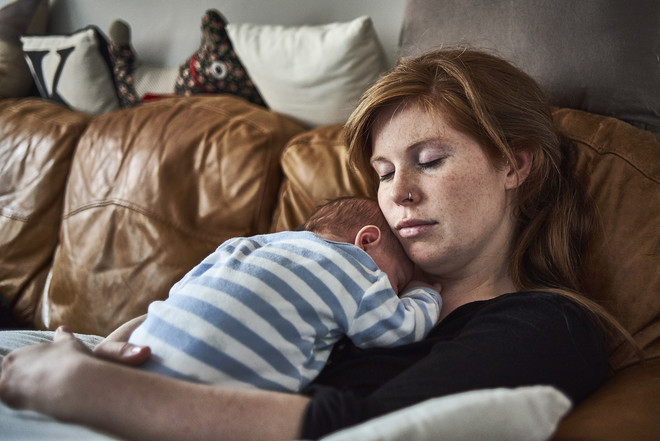Nursing baby
Sleep is important for a baby, especially in early childhood.age. The child's physical and mental health depends on it. The baby should sleep during the day for the first 2 months for 7-8 hours, from 3-5 months - 5 hours, and at 8-9 months - 2 times for 1.5 hours. These standards were established by pediatricians to make it easier for mothers to navigate the child's schedule. Sometimes a mother's job is to put her baby to sleep during the day and rest herself Photo: Getty If a newborn does not sleep during the day, there are good reasons:
Sometimes a mother's job is to put her baby to sleep during the day and rest herself Photo: Getty If a newborn does not sleep during the day, there are good reasons:
- Discomfort in the stomach and intestines, namely, colic or bloating. Mom needs to keep track of the baby’s food, massage the tummy and put on the vent if necessary.
- Diapers. They need to be changed every 2-3 hours so that the accumulated moisture does not disturb the baby.
- Hunger or thirst. The baby may not have enough to eat.
- Changing weather, changing temperature or humidity in the room.
- Extraneous sounds and sharp odors.
Before you put your baby to bed, make sure he or she is comfortable and has all of his or her needs met.
Sleep problems at one year
According to the norms, a one-year-old child should receiveabout 2 hours of daytime sleep, but the child sometimes does not strive for this. The problems may be related to the fact that the baby is not at all interested in letting go of his exhausted mother. He will resort to various tricks, trying to attract attention to himself.
Sleep norms from 2 years
When the baby is about 2, his "norms"sleep is 1.5 hours. Sometimes it is easier for a mother to refuse to put the baby to bed during the day than to spend several hours on it. Despite the relativity of sleep norms, the child needs daytime rest.
What time and how to stack the child
Before you put your baby to bed, make sure he/she hascomfortable environment and remove distractions. You can prepare a one-year-old child for sleep with a light massage, tell him a story or give him a relaxing bath. This also works with older children. A routine works well. If you put the baby to bed after a walk and lunch at the same time, he will develop a reflex. Often a child "overdoes it", that is, gets so tired that it is difficult for him to fall asleep. In this case, 2 things work:
- Track the status of the baby. As soon as you notice signs of fatigue, put him to bed.
- An excited baby cannot be "put to sleep" right away. Do a half-hour preparation.
A gentle massage and a calm fairy tale will do the trickbusiness. The older the child, the more heroic efforts the mother will have to make to get him to sleep. There are no strict norms for daytime sleep, but a baby needs it. If your baby has sleep problems, you should consult a doctor.









